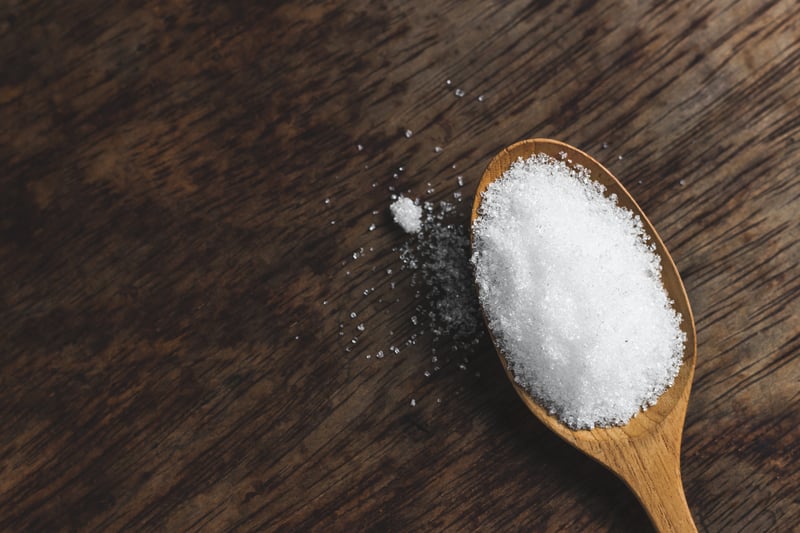Get Healthy!

- Cara Murez
- Posted June 30, 2023
WHO Experts Take Another Look at Aspartame's Safety
The artificial sweetener aspartame is in the hot seat once more.
Two separate committees made up of health experts from around the world will soon offer advice on consuming aspartame, a popular sugar substitute that is added to sodas, cough drops, desserts and gum.
The World Health Organization's International Agency for Research on Cancer (IARC) is analyzing whether the ingredient is a carcinogen. Meanwhile, the WHO's Joint Expert Committee on Food Additives will offer guidance on an acceptable daily intake of aspartame.
Both are expected to issue their reports on July 14, according to leaked WHO documents, CNN reported.
Aspartame continues to have approval from the U.S. Food and Drug Administration as a safe product.
Not only that, but U.S. health officials are concerned that doing simultaneous, potentially conflicting, reviews will "seriously undermine"confidence in the scientific process and "inflame the current climate of public skepticism about the validity of science and scientific process,"according to a letter sent to the WHO last summer by the U.S. Department of Health and Human Services.
The WHO's cancer research committee considers a broad range of items carcinogens, including mobile devices, Qi Sun, an associate professor of nutrition and epidemiology at Harvard's T.H. Chan School of Public Health, told CNN.
For aspartame to be ruled a carcinogen "boils down to what kind of evidence we have,"he added.
"I feel the evidence is pretty sparse either way to say 'aspartame is cancerous' or to suggest that aspartame is not as carcinogenic,"Sun said.
Another U.S. health expert also weighed in on the reviews.
"I think you just have to be aware that there's a question over this,"Dr. James Farrell, a gastrointestinal oncologist at the Yale School of Medicine, told CNN. "And the people who've raised this question have an objective reason for raising this question. They've looked at it from a medical and scientific perspective "¦ so I think it would be foolish to ignore."
Aspartame is included in such popular beverages as Coke Zero Sugar, Diet Coke, Sprite Zero, Pepsi Zero Sugar and Mountain Dew Zero Sugar, CNN reported.
Both the Calorie Control Council, a trade group for the manufacturers of artificial sweeteners, and the International Council of Beverages Association (ICBA) took issue with the news.
"Consumers deserve facts, and the fact is aspartame is safe and one of the most widely studied food ingredients, which is why the Calorie Control Council is gravely concerned about any unsubstantiated and misleading assertions that contradict decades of science and global regulatory approvals,"Calorie Control Council President Robert Rankin said in a statement.
"IARC is not a regulatory agency, ingredient expert or food safety authority, their sole focus is to find substances that could cause cancer, and they have classified things like aloe vera, low frequency magnetic fields and pickled vegetables as possibly causing cancer. Consumers want context and that is what's missing from these misleading claims,"he added.
"While it appears IARC is now prepared to concede that aspartame presents no more of a hazard to consumers than using aloe vera, public health authorities should be deeply concerned that this leaked opinion contradicts decades of high-quality scientific evidence and could needlessly mislead consumers into consuming more sugar rather than choosing safe no- and low-sugar options -- all on the basis of low-quality studies," ICBA Executive Director Kate Loatman said in a statement.
"We remain confident in the safety of aspartame, given the overwhelming weight of scientific evidence and positive safety determinations by food safety authorities in more than 90 countries around the world," she added.
But the WHO said its committee decisions will complement each other. The FDA will still make its own determination on aspartame guidelines, CNN reported.
This is only the latest time that the WHO has offered its advice on sugar substitutes. Last month, it recommended against using these substitutes to lose weight, saying they did not lead to a sustained reduction in obesity, CNN reported.
"Like anything in life, you've got to start with everything in moderation,"Farrell said. "If they release data that suggests or questions the safety of [aspartame] "¦ if you're able to limit your intake, why wouldn't that be a reasonable thing to think about?"
Artificial sweeteners may be a good choice temporarily for people to reduce sugar intake, but they have better options long-term, including water, unsweetened teas or low-fat milk, Sun suggested.
"I think consumers could easily switch to those household beverages to improve their health rather than get concerned about consuming artificially sweetened beverages and cancer,"Sun said. "We don't have evidence either way."
More information
The U.S. National Cancer Institute has more on artificial sweeteners.
SOURCES: CNN; statements, Calorie Control Council and International Council of Beverages Associations







